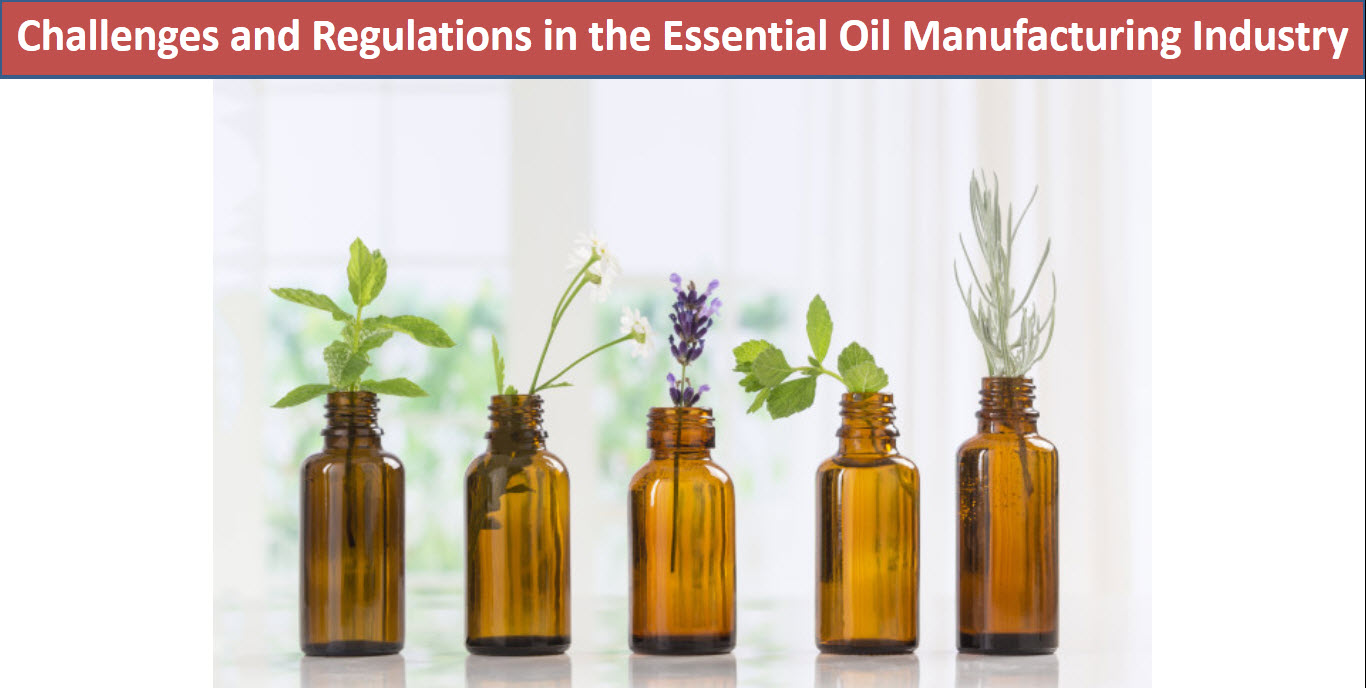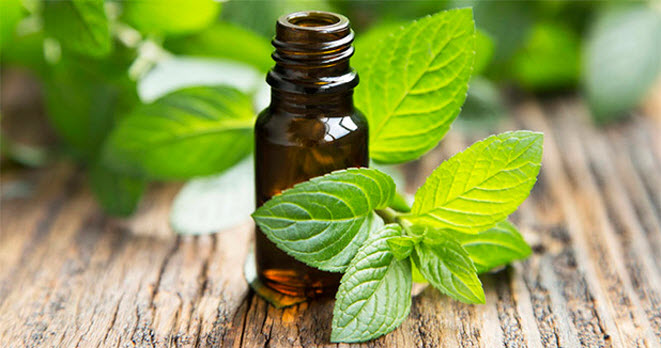Blogs

Challenges and Regulations in the Essential Oil Manufacturing Industry
The essential oil manufacturing industry plays a vital role in providing consumers with natural and aromatic products used in various applications. However, this sector faces a complex regulatory landscape and a set of unique challenges that impact both manufacturers and consumers. In this article, we will analyze the regulatory environment and common challenges faced by manufacturers in the essential oil manufacturing industry.
Regulatory Landscape
The essential oil manufacturing industry is subject to a web of regulations and standards at both the national and international levels. Key aspects of the regulatory landscape include:
Quality and Purity Standards
Regulation: Various regulatory bodies, such as the U.S. Food and Drug Administration (FDA) and the European Medicines Agency (EMA), have established quality and purity standards for essential oils. These standards define the permissible levels of contaminants and set guidelines for labeling and claims.
Challenge: Meeting these standards requires rigorous testing, quality control, and adherence to Good Manufacturing Practices (GMP), which can be resource-intensive for manufacturers.

Sustainability and Ethical Sourcing
Regulation: Ethical sourcing and sustainable practices are increasingly important in the essential oil industry. Some regulatory bodies and certification organizations require manufacturers to demonstrate sustainable sourcing and fair trade practices.
Challenge: Ethical sourcing can be challenging, particularly when it involves working with local communities and indigenous groups. Additionally, sustainability practices may require significant investments in farming and harvesting techniques.
Labeling and Claims
Regulation: Regulations govern how essential oils are labeled and the claims that manufacturers can make about their products. Misleading or false claims can result in regulatory penalties.
Challenge: Ensuring accurate labeling and avoiding misleading claims can be complex, as it requires a deep understanding of the regulatory environment and ongoing compliance monitoring.
International Trade
Regulation: Essential oil manufacturers engaged in international trade must navigate a maze of import/export regulations, including customs and import duties. Compliance with international trade agreements and regulations is crucial.
Challenge: Exporting and importing essential oils across borders can be logistically challenging, and manufacturers must stay informed about changes in international trade policies.
Common Challenges
In addition to regulatory hurdles, essential oil manufacturers face several industry-specific challenges:
Quality Control
Ensuring the consistent quality of essential oils is a significant challenge. Factors like weather conditions, soil quality, and plant variability can affect the chemical composition and potency of essential oils.
Supply Chain Complexity
The supply chain for essential oils can be complex, involving multiple intermediaries. Manufacturers must establish reliable sources for raw materials and maintain supply chain transparency.
Environmental Impact
Sustainable and environmentally friendly practices are essential, but they can be challenging to implement, especially in regions with inadequate infrastructure for waste disposal and sustainable farming.
Consumer Education
Consumers often lack understanding about the potency and safe use of essential oils. Manufacturers face the challenge of educating consumers while ensuring responsible usage.
Competition and Innovation
The essential oil market is competitive, and manufacturers must constantly innovate to differentiate their products and stay relevant.
Conclusion
The essential oil manufacturing industry is subject to a complex regulatory landscape, covering quality standards, ethical sourcing, labeling, and international trade. These regulations aim to protect consumers, promote sustainability, and ensure the integrity of the industry. In addition to regulatory challenges, manufacturers face industry-specific issues related to quality control, supply chain complexity, environmental impact, consumer education, and competition. Navigating these challenges successfully requires a deep understanding of the regulatory environment, commitment to quality, and a dedication to sustainable and ethical practices. Manufacturers that can meet these challenges will thrive in this dynamic and growing sector.

